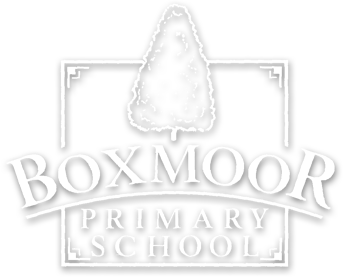Intent, Implementation and Impact
WRITING
Our Intent
At Boxmoor Primary School, we believe that the ability to write with confidence and accuracy is an essential life skill. It is our intent to have a stimulating and engaging, high quality writing curriculum that inspires our children to succeed and excel in all aspects of English.
We believe writing encompasses the acquisition of knowledge and breeds a positive attitude to learning, teaching perseverance, and empowering our children to be confident, intelligent and effective communicators through writing.
Throughout the curriculum, we aim for the children to acquire and develop the key writing knowledge that has been identified across each year group, as well as the application of high quality vocabulary, handwriting and spelling. We also aim to ensure that our children continually apply their English skills across the curriculum through purposeful writing opportunities.
Implementation
The National Curriculum forms the basis on which our English curriculum has been built.
English units are planned around appropriately levelled, high-quality texts of varying genre and context with cross curricular links where appropriate. This includes unit plans produced by Herts for Learning, including whole school 'Explore and Engage' units. This enables us to develop confident, enthusiastic writers who can express themselves in a variety of different styles and across a variety of contexts.
Lessons often include a speaking and listening focus where practical peer work offers pupils the opportunity to rehearse and embed new skills in an engaging, exciting and interactive manner to inspire and enthuse pupils. Through these activities, our pupils develop their confidence in order to be able to independently apply these skills in their writing.
It is one of our priorities to ensure that all pupils have the ability to spell words efficiently and accurately, whilst drawing on knowledge of phonics and spelling patterns. In EYFS and KS1, the emphasis is on phonics, moving onto the whole school framework of spellings for support and structure.
In Years 3- 6, the ‘No-Nonsense Spelling Scheme’ / HfL ‘Essential Spelling Scheme’ is used in accordance with the National Curriculum (2014). Spelling rules are taught explicitly. A school focus is on encouraging and supporting pupils to apply their acquired knowledge in their written work across the curriculum.
Handwriting is taught regularly. In EYFS and Year 1, pupils are taught to print letters using the correct formation and orientation. A variety of aides are available to support handwriting in the early stages. As correct letter formation and joining become established, the teaching focuses on consistency in size, shape and general clarity of writing.
In Year 2, pupils learn leading strokes and begin to learn how to join up their handwriting. Once pupils establish a fluent, cursive style, they will be given a pen licence which grants them the ability to write in pen. It is expected that all pupils receive a pen licence by the end of Year 3.
At Boxmoor Primary School, we believe that writing is strengthened by instilling a love for reading within our pupils. (Please see our reading section on the school website).
Impact
The impact of our writing curriculum will be measured through:
- Pupil voice interviews
- Book scrutinies, drop- ins, discussions with staff etc.
- Moderation and scrutiny of pupil’s books and professional dialogue between teachers to assess the quality of children’s learning
- Sharing good practice among staff
- Marking of written work in books, including Verbal Feedback, using the school’s marking policy
- Monitoring of progress from year to year to ensure pupils remain ‘on track’ from their starting point
- End of Key Stage assessment data
The implementation of this curriculum will ensure that, by the time children leave Boxmoor Primary School, they will be:
- Confident learners that have a love of reading and writing.
- Resilient, independent learners that recognise how English is relevant to their future and ensuring they have high aspirations moving forwards.
- Secure and fluent in their application of skills and knowledge so that they can read and write with regard to audience and purpose.
